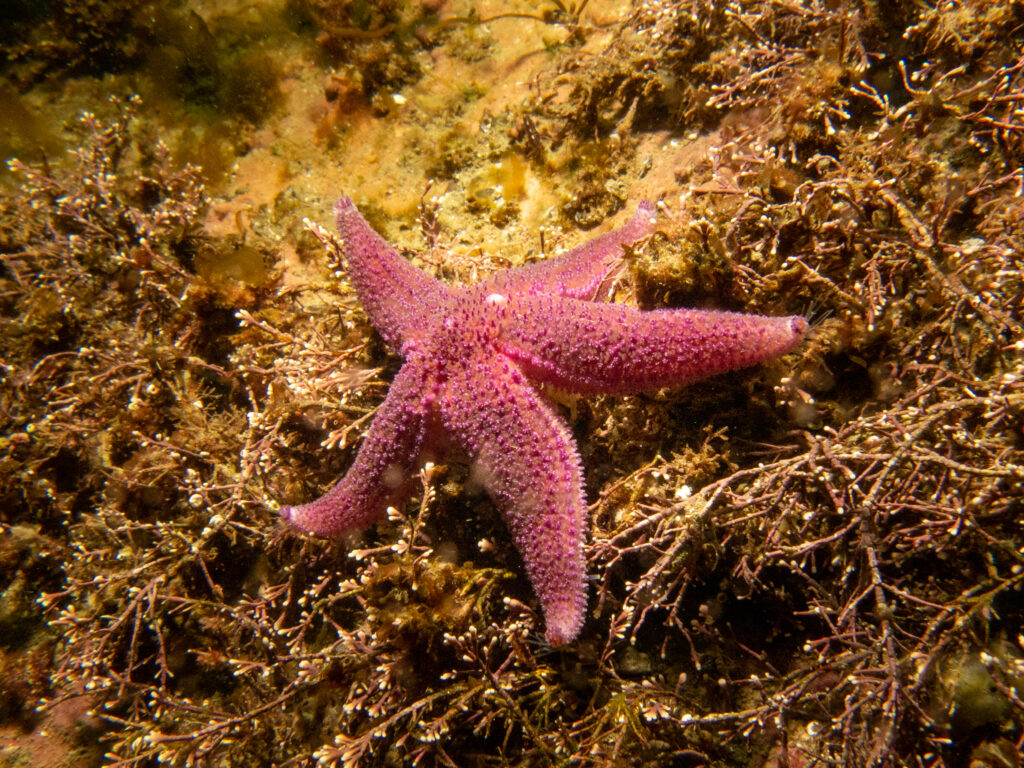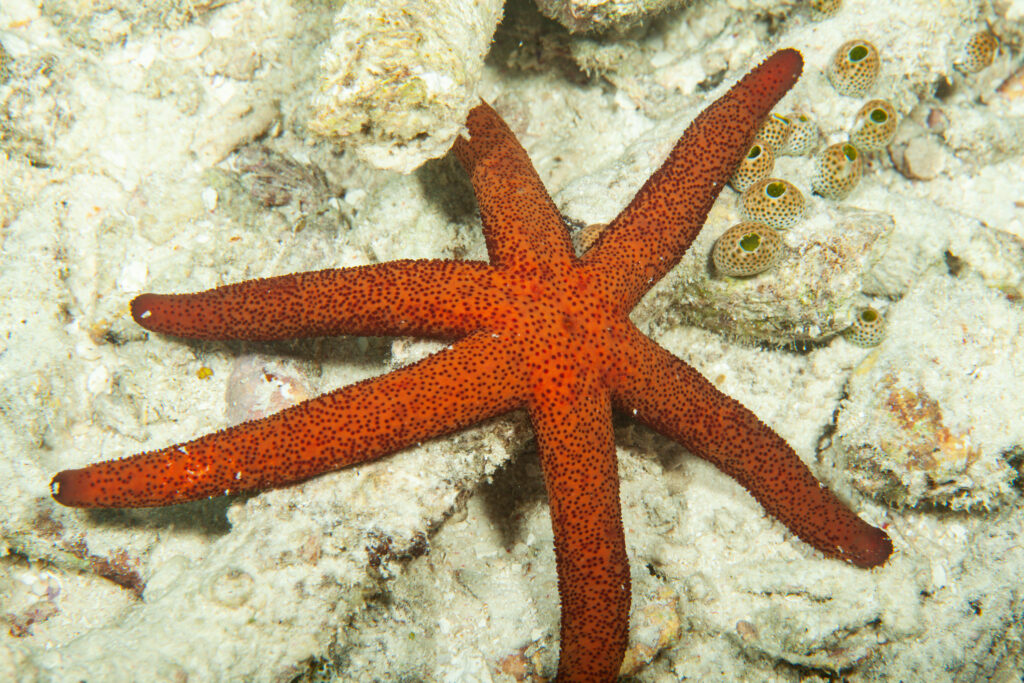Starfish are remarkable sea creatures for many different reasons, but their anatomy is definitely something that makes them stand out against other marine life. These star-shaped animals have some very interesting body parts, none of which are as you might expect them to be.
Ready to learn about everything from their stomachs and eyes to their arms and feet? Stick with us…
Anatomy of a starfish
Our handy video below is here to give you a breakdown of all the weird and wonderful body parts of a common starfish.
Key takeaways
To summarise, here are the key points from the video:
- Starfish are classified as echinoderms
- They have eyes and tube feet on each of their arms
- They don’t have brains or blood
- Most starfish have five arms, but some can have up to 50
- Starfish have two stomachs
What is a starfish?
Starfish (Asteroidea) belong to the echinoderm family, which means they’re closely related to sand dollars and sea urchins. Approximately 2,000 species of starfish are known to be swimming around in seas around the world, including the common starfish (Asterias rubens), cushion starfish and blue sea star. Their habitats are varied depending on the species. Most live in tropical coral reefs and stay close to the seafloor. However, some prefer to live on rocky shores, seagrass and even cold seafloor habitats.
Their appearance can also vary depending on the species, so let’s take a closer look at the common starfish. This species is the one you most often picture when you think of a starfish. They can grow to be around 10 to 30cm in diameter, have five arms and can live for up to 35 years in the wild.

Moving on to some of their more unusual features, starfish have two stomachs, which is an adaptation that allows them to choose from a wider range of invertebrates in their diets. One stomach stays within the starfish, but the other can be ejected through their mouths to eat food outside the body.
On each of their five arms, starfish have what’s known as tube feet. These are arranged in grooves and look like tiny spikes. The tubular feet use hydraulic pressure to suction the starfish to different surfaces. They can even attach themselves to prey and remove their hard shells before eating. Each arm also has eyes that help the starfish navigate their surroundings in a way.
What colour is a starfish?
The common starfish is a brownish-orange colour, although they can also be pale yellow, brown, red, or purple. Their rough skin makes it difficult for predators to attack, and their colourings can help them camouflage against the coral reefs they mostly inhabit to help protect them further.
How many arms does a starfish have?
The majority of starfish have five arms, although some can have up to 50! Their arms are what give them their star-like shape.
Certain tropical species of starfish can form a completely new starfish from just a part of a severed limb, although this does take up to a year to happen.
Do starfish have eyes?
Starfish have eyes, but they’re not where you’d expect to find them, which is why you might have fallen for the common misconception that they don’t have any. Their eyes are on the ends of their arms, and their vision is much less detailed than ours. Rather than being able to see shapes and structures properly, they can only detect different shades of light to help them navigate their surroundings.
How does a starfish eat?

Starfish actually have two stomachs – one being the cardiac and the other being the pyloric. The cardiac stomach can leave the body, while the pyloric stays inside. Because of this adaption, they can spit their cardiac stomachs out of their mouths and wrap them around their food to digest it outside of the body. This allows them to eat prey that might be larger than their mouths. They’ll then pull their stomach back in through the mouth where the pyloric stomach can take over the rest of the digestion process.
In terms of what they eat, they have quite a varied diet. Starfish are carnivores and mostly feed on clams, oysters, snails, sponges, sea urchins and other invertebrates. Since some of their food has hard shells, starfish can use their suction-cupped feet to pry them from their shell and ensure they only eat the soft centre.
Do starfish have brains?
Starfish don’t actually have a brain or any blood in their bodies, which is odd since so many other creatures, including humans, rely on these to function. So, how exactly can they survive without either of these things?
After some scientific research, it was discovered that starfish have a unique ability to filter nutrients from the seawater and pump them through their nervous system. Once the nutrients have permeated the nervous system, the starfish can pull energy from here, which allows them to function as they do without needing a brain or blood. Clever!
Now that you’re clued up on the anatomy of a starfish, why not come and visit ours? You can find our common starfish at our Ocean Floor exhibit here at Bristol Aquarium! Buy your tickets and start planning your next visit here.
